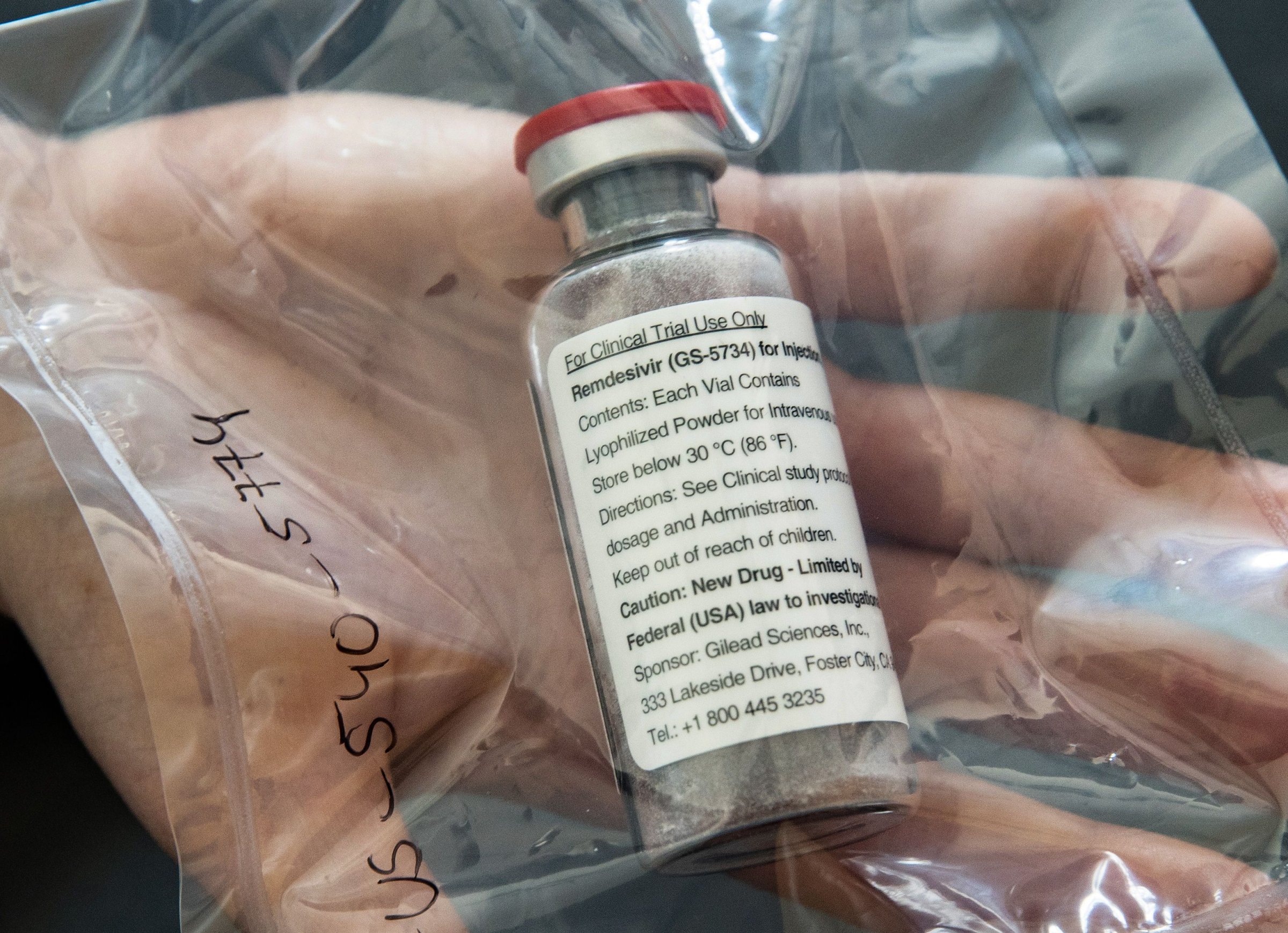
A summary of a study conducted in China on a potential COVID-19 treatment, remdesivir, was posted on the World Health Organization (WHO) website on Thursday and then removed.
The researchers responsible for the study had not approved its posting; Tarik Jasarevic, a WHO spokesperson told STAT that it was “inadvertently posted on the website and taken down as soon as the mistake was noticed. The manuscript is undergoing peer review and we are waiting for a final version before WHO comments.”
Remdesivir, an experimental drug originally developed to treat Ebola, is not yet approved for that or any other disease. But studies conducted by remdesivir’s maker, Gilead, have shown that the experimental drug could be effective against coronaviruses like those that cause SARS and MERS. So during the COVID-19 crisis, Chinese researchers contacted the company about using it to treat the sickest patients, and Gilead made the drug available under a compassionate use program, to treat those with no other treatment options.
After Gilead agreed, Chinese doctors launched two formal studies of remdesivir; one in severely ill patients, and another in people with milder disease. Both studies compared the drug to a placebo. But in mid-April, both were suspended when scientists could not enroll the more than 400 patients needed for each trial.
The summary posted temporarily to the WHO’s website involved the trial to treat severe patients. The Chinese researchers noted that remdesivir was “not associated with a difference in time to clinical improvement,” according to STAT, which took a screen shot of the study before it was removed. In addition, according to the documentation briefly published on the WHO site, after a month, there was almost no difference in the fatality rate of patients given remdesivir compared to those who received the placebo.
In a statement responding to the results, Dr. Merdad Parsey, chief medical officer of Gilead Sciences, said “we believe the post included inappropriate characterizations of the study. The study was terminated early due to low enrollment and, as a result, it was underpowered to enable statistically meaningful conclusions. As such, the study results are inconclusive, though trends in the data suggest a potential benefit for remdesivir, particularly among patients treated early in the disease.”
Parsey seemingly was referencing recent remdesivir studies involving COVID-19 patients in the U.S., Europe and Canada, which have hinted at more positive results. In one, which involved 53 patients who were treated with remdesivir on a compassionate use basis, 68% of those experiencing severe respiratory symptoms improved after 10 days. In another, involving 125 U.S. patients, most who took the drug improved enough to be discharged from the hospital. However, unlike the Chinese studies, those trials did not compare remdesivir to a placebo.
The studies from China would be the first to provide solid data from gold standard clinical trials that randomly assigned people to remdesivir or placebo. Their results would likely guide decisions about ongoing trials in the U.S. and around the world, including one sponsored by Gilead and another by the National Institutes of Health, seeking to uncover which COVID-19 patients might benefit most from the drug, and when in the course of the disease the drug is most effective. Those studies, however, will take months to complete, regardless of this data leak.
More Must-Reads from TIME
- Where Trump 2.0 Will Differ From 1.0
- How Elon Musk Became a Kingmaker
- The Power—And Limits—of Peer Support
- The 100 Must-Read Books of 2024
- Column: If Optimism Feels Ridiculous Now, Try Hope
- The Future of Climate Action Is Trade Policy
- FX’s Say Nothing Is the Must-Watch Political Thriller of 2024
- Merle Bombardieri Is Helping People Make the Baby Decision
Contact us at letters@time.com